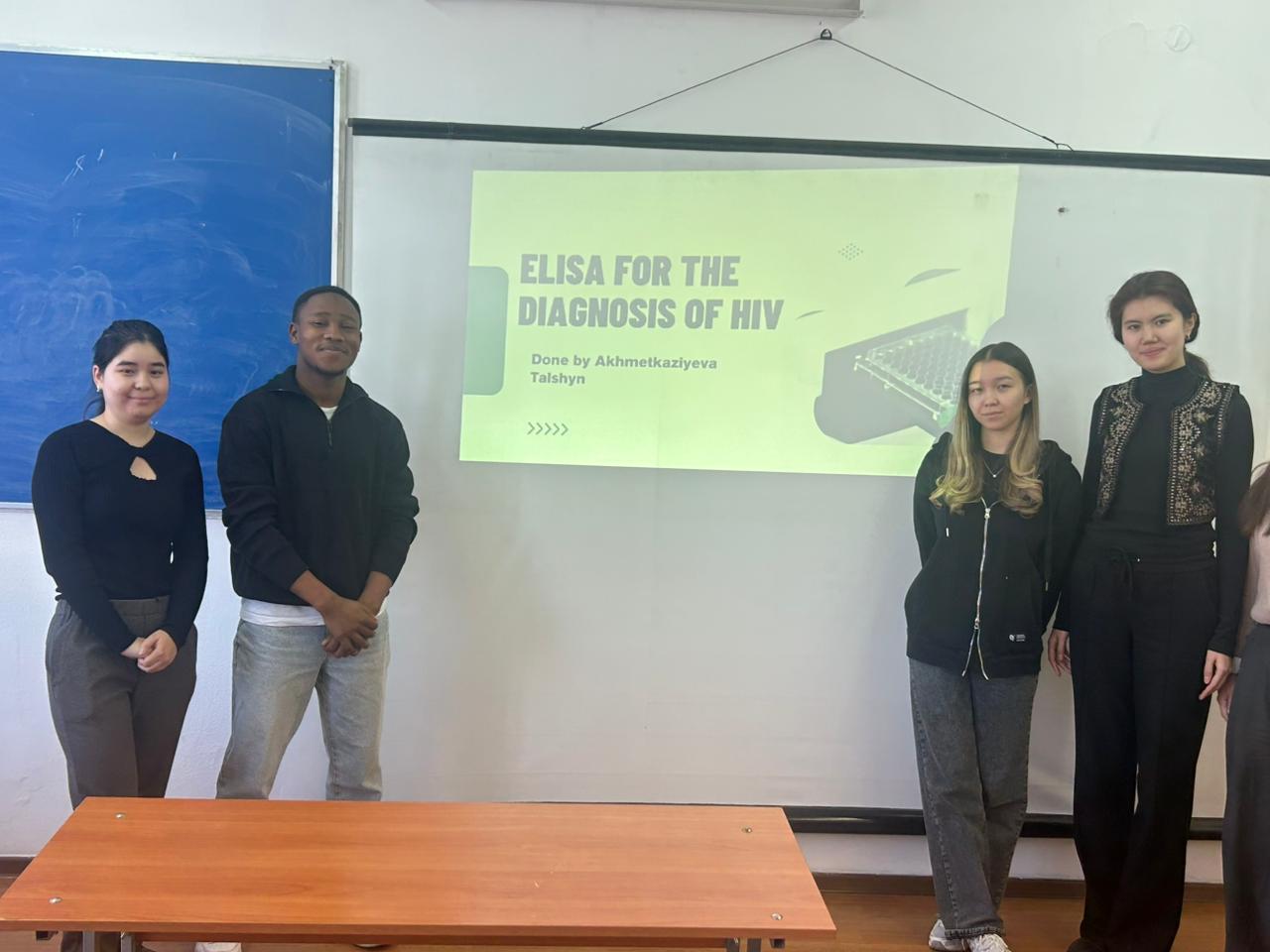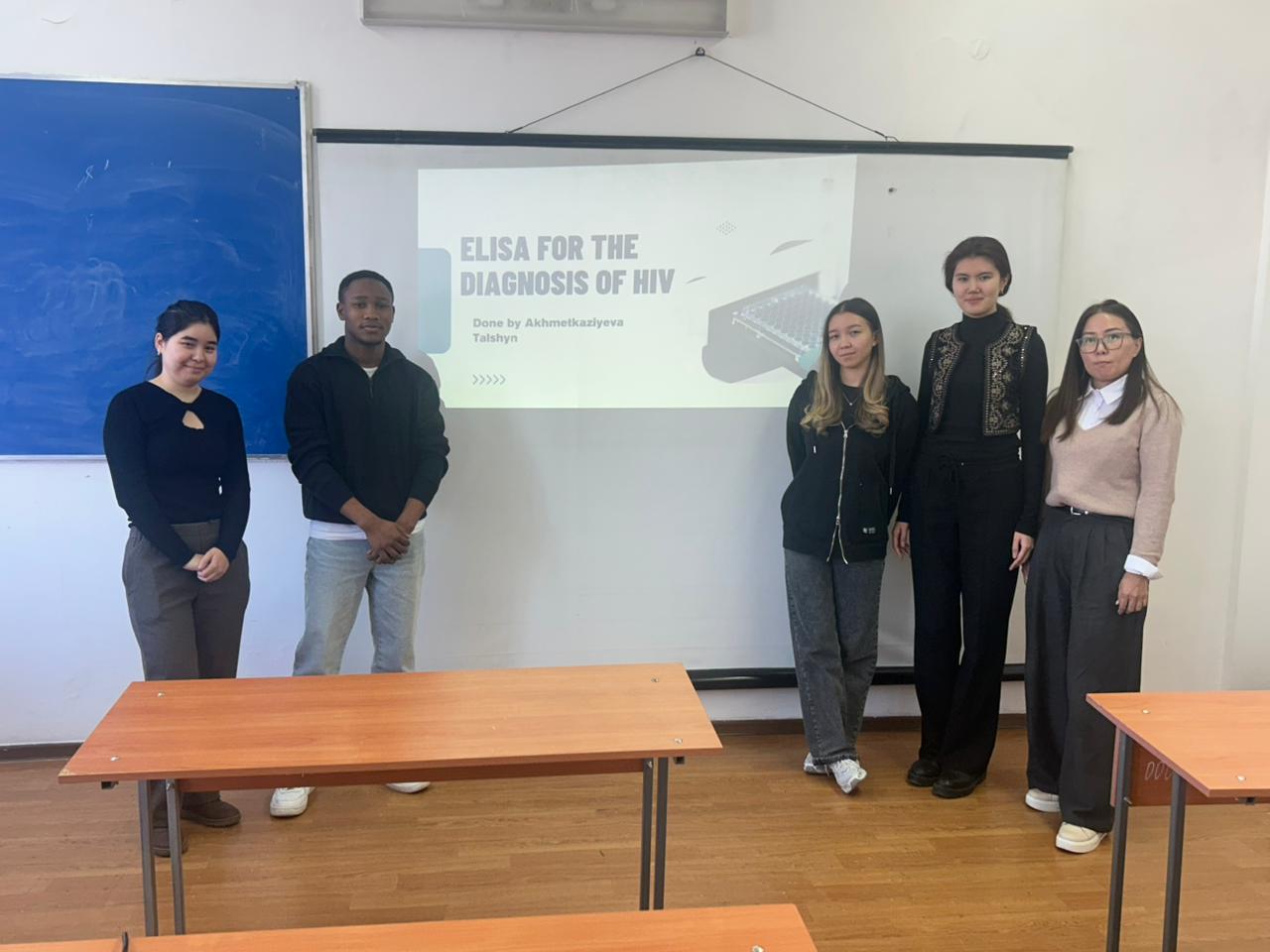Workshop on “Developing rapid HIV diagnostic tests” topic

As part of SDG 3: Good Health and Well-Being, a seminar was held by students dedicated to the topic of modern HIV testing. During the session, participants explored the significant progress made in the development of diagnostic systems, from traditional laboratory methods to rapid tests and innovative at-home testing kits.
Students discussed how home-use tests have expanded accessibility, enabling early detection, protecting confidentiality, and reducing barriers to screening. At the same time, the seminar highlighted important limitations of self-testing, including the need for confirmatory laboratory diagnostics, sensitivity challenges during early infection, and the importance of proper user guidance.
Special attention was given to point-of-care (POC) HIV tests widely used in clinical and community settings.
Real-world examples of how these technologies are currently applied in public health programs were reviewed, illustrating their role in improving early diagnosis and supporting global efforts to reduce HIV transmission.
The seminar helped students deepen their understanding of the technological, clinical, and social aspects of HIV testing and emphasized the importance of raising awareness and ensuring equitable access to reliable diagnostic tools.
The event was organized by A.A. Meldеbekova and N.S. Mamytova, candidates of biological sciences.

Other news


